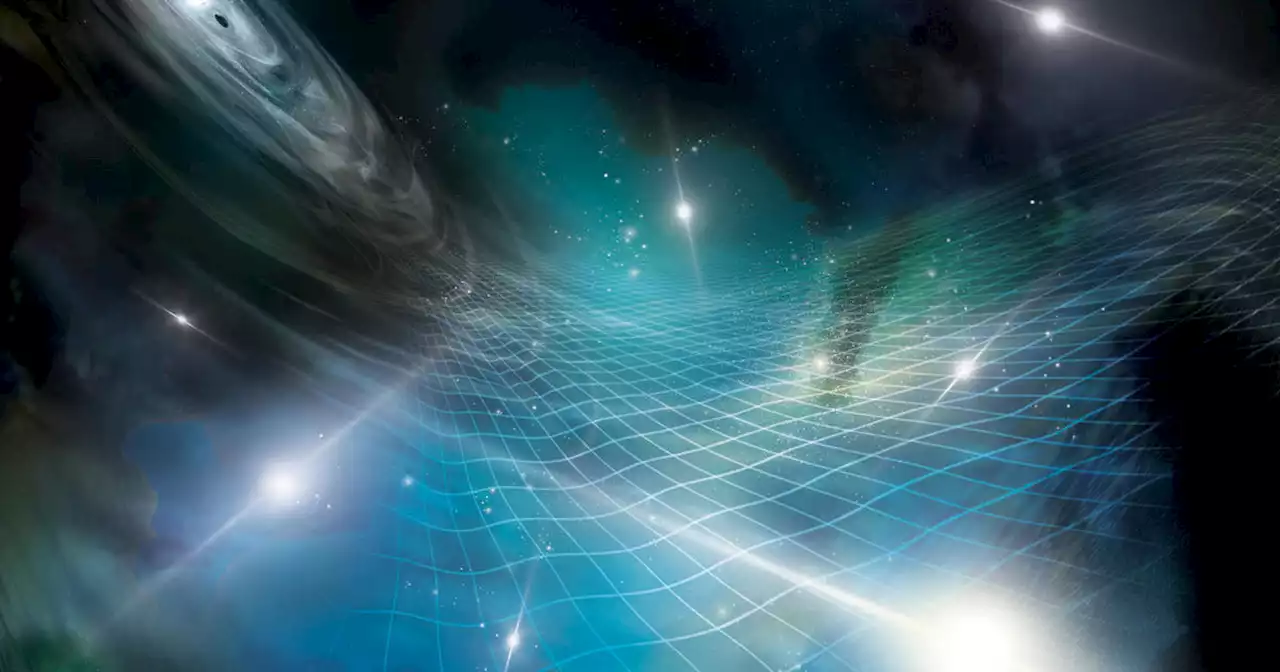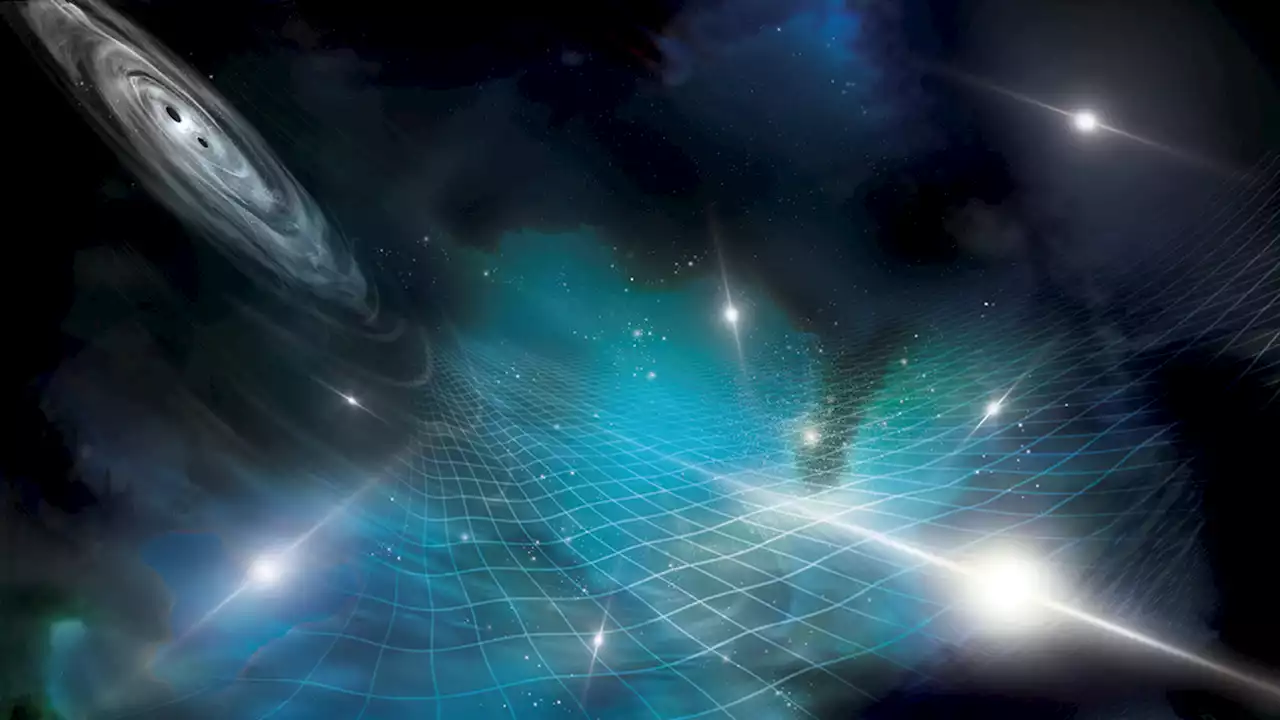Scientists have observed for the first time the faint ripples caused by the motion of black holes that are gently stretching and squeezing everything in the universe.
They reported Wednesday that they were able to "hear" what are called low-frequency gravitational waves - changes in the fabric of the universe that are created by huge objects moving around and colliding in space.
In 2015, scientists used an experiment called LIGO to detect gravitational waves for the first time and showed Einstein was right. But so far, those methods have only been able to catch waves at high frequencies, explained NANOGrav member Chiara Mingarelli, an astrophysicist at Yale University. Galaxies across the universe are constantly colliding and merging together. As this happens, scientists believe the enormous black holes at the centers of these galaxies also come together and get locked into a dance before they finally collapse into each other, explained Szabolcs Marka, an astrophysicist at Columbia University who was not involved with the research.
No instruments on Earth could capture the ripples from these giants. So "we had to build a detector that was roughly the size of the galaxy," said NANOGrav researcher Michael Lam of the SETI Institute. These bursts are so regular that scientists know exactly when the radio waves are supposed to arrive on our planet - "like a perfectly regular clock ticking away far out in space," said NANOGrav member Sarah Vigeland, an astrophysicist at the University of Wisconsin-Milwaukee. But as gravitational waves warp the fabric of spacetime, they actually change the distance between Earth and these pulsars, throwing off that steady beat.
So far, this method hasn't been able to trace where exactly these low-frequency waves are coming from, said Marc Kamionkowski, an astrophysicist at Johns Hopkins University who was not involved with the research.
México Últimas Noticias, México Titulares
Similar News:También puedes leer noticias similares a ésta que hemos recopilado de otras fuentes de noticias.
 For first time ever, scientists 'hear' gravitational waves rippling through the universeFor the first time ever, scientists can 'hear' the faint ripples caused by the motion of black holes that are gently stretching and squeezing everything in the universe.
For first time ever, scientists 'hear' gravitational waves rippling through the universeFor the first time ever, scientists can 'hear' the faint ripples caused by the motion of black holes that are gently stretching and squeezing everything in the universe.
Leer más »
 UT Austin scientists discover first-known Jurassic vertebrate fossils in TexasResearchers at UT Austin have discovered fossilized remains of an extinct marine reptile in the Malone Mountains of West Texas. The discovery of the fossils is solid evidence of Jurassic life in the state.
UT Austin scientists discover first-known Jurassic vertebrate fossils in TexasResearchers at UT Austin have discovered fossilized remains of an extinct marine reptile in the Malone Mountains of West Texas. The discovery of the fossils is solid evidence of Jurassic life in the state.
Leer más »
 For first time, scientists 'hear' chorus of gravitational waves that ripple through the universeScientists have observed for the first time the faint ripples caused by the motion of black holes that are gently stretching and squeezing everything in the universe.
For first time, scientists 'hear' chorus of gravitational waves that ripple through the universeScientists have observed for the first time the faint ripples caused by the motion of black holes that are gently stretching and squeezing everything in the universe.
Leer más »
 For first time, scientists 'hear' chorus of gravitational waves that ripple through the universeScientists have observed for the first time the faint ripples caused by the motion of black holes that are gently stretching and squeezing everything in the universe.
For first time, scientists 'hear' chorus of gravitational waves that ripple through the universeScientists have observed for the first time the faint ripples caused by the motion of black holes that are gently stretching and squeezing everything in the universe.
Leer más »
 The future of space exploration is a transforming, animal-like robot, scientists sayA new robot designed to mimic the movement of animals that roam Planet Earth will eventually change the way other planets and celestial bodies will be explored.
The future of space exploration is a transforming, animal-like robot, scientists sayA new robot designed to mimic the movement of animals that roam Planet Earth will eventually change the way other planets and celestial bodies will be explored.
Leer más »
 Dream control: Scientists stimulate the brain to influence lucid dreamsScientists have made a breakthrough by implanting electrodes in the brain's motor cortex, allowing for the stimulation of dreams during REM sleep.
Dream control: Scientists stimulate the brain to influence lucid dreamsScientists have made a breakthrough by implanting electrodes in the brain's motor cortex, allowing for the stimulation of dreams during REM sleep.
Leer más »
